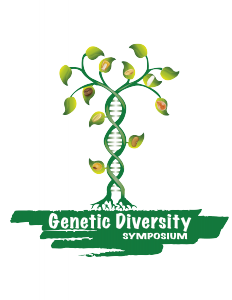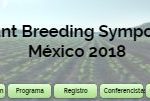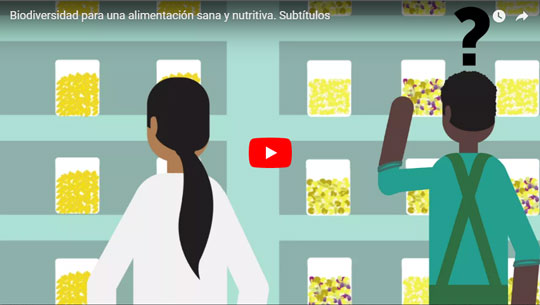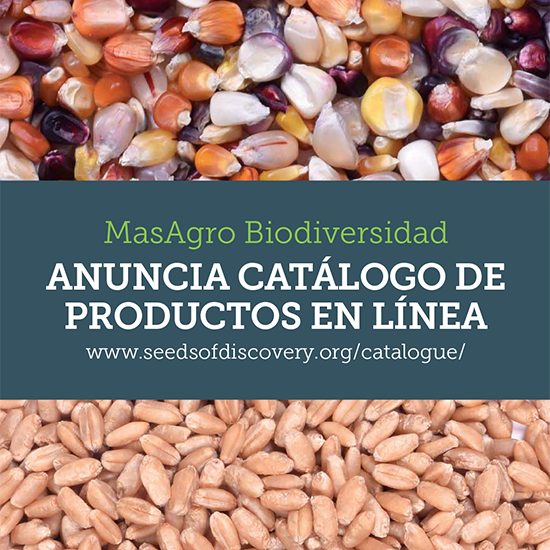Graduate students at CIMMYT Organize Genetic Diversity Symposium
 Calling all post-graduate students interested in genetic diversity! Graduate students working with The International Maize and Wheat Improvement Center (CIMMYT) will be holding an international symposium, “Genetic Diversity: The key to modern crop improvement and food security,” at CIMMYT headquarters in Texcoco, Mexico on 25 and 26 August. The symposium is open to post-graduate students interested in plant breeding and genetic diversity, and will be held in both Spanish and English with simultaneous translation available.
Calling all post-graduate students interested in genetic diversity! Graduate students working with The International Maize and Wheat Improvement Center (CIMMYT) will be holding an international symposium, “Genetic Diversity: The key to modern crop improvement and food security,” at CIMMYT headquarters in Texcoco, Mexico on 25 and 26 August. The symposium is open to post-graduate students interested in plant breeding and genetic diversity, and will be held in both Spanish and English with simultaneous translation available.
This event is part of the DuPont Plant Sciences Symposia series, established in 2008, and is one of nearly 20 DuPont Pioneer symposia that will be held this year across the world. Organized for, and by postgraduate students, these symposia allow student organizers to gain valuable skills and experience in event organization. The students are organizing this event with the support of by Gilberto Salinas, head of capacity Development at the Seeds of Discovery (SeeD) initiative, and Tabare Abadie, lead of Research Effectiveness at DuPont Pioneer.
Students attending the symposium will benefit from unique opportunities to interact with and learn from key researchers in their field through panels, keynote speeches and breakout sessions. The main speakers include international experts in the fields of genetic diversity and crop science, who will present on topics pertaining to how to utilize genetic diversity in modern crop breeding to confront the challenges faced by agriculture today, such as climate change and other threats to food security. The symposium will also include a poster presentation highlighting the research activities of select participating students. Interested students must register by July 1st here.
“The symposium is an excellent opportunity for students to interact and learn from investigators in their fields, as well as with students from across Mexico and neighboring countries conducting similar research,” said Juan de Dios Hernández Quintero, a Ph.D. student studying genetics at the Colegio de Posgraduados (COLPOS)conducting thesis research at CIMMYT and a student organizer of the symposium. “It’s also a great opportunity to learn about the interaction between the public and private sector.”
CIMMYT is home to one of the world’s largest collections of genetic diversity in maize and wheat, the CIMMYT germplasm bank, as well as cutting edge projects such as the Seeds of Discovery initiative that works to unlock and utilize novel genetic diversity from genebanks to accelerate the development of improved maize and wheat varieties. “CIMMYT is very pleased to host this symposium where students will learn and discuss about the critical importance, challenges and issues surrounding the use of genetic resources to feed the world. Students will enjoy unique opportunities to interact with several international experts in the conservation, characterization and use of crop genetic resources,” said Kevin Pixley, director of the Genetic Resources Program at CIMMYT and the SeeD initiative. Several of the student organizers of the symposium are conducting research for their theses under SeeD scientists as part of SeeD’s capacity development activities.
This is the first time that a DuPont Pioneer plant sciences symposium will be held in Mexico, and also the first time that the event will be held in a research center. “While these symposia are usually held in universities, CIMMYT brings together so many post-graduate research students from across Mexico interested in genetic diversity that we thought it would be the perfect location,” said Noemi Ortega, a graduate student in agricultural biotechnology at the Universidad Autonoma de Chapingo conducting research with CIMMYT and one of the student organizers of the event.
The speakers include Kevin Pixley, Director of the Genetic Resources Program at CIMMYT and the SeeD initiative; Jim Holland, Professor of Crop Science and Research Geneticist at North Carolina State University (NCSU); Renee Lafitte, research fellow at DuPont Pioneer; Leandro Perugini, research scientist at DuPont Pioneer; Major M. Goodman, member of the national academy of sciences and director of the maize breeding and genetics program at NCSU; and Juan Manuel Hernández Casillas, researcher in genetic resources at the Instituto Nacional de Investigaciones Forestales, Agrícolas y Pecuarias (INIFAP).
Interested students can register online at the symposium’s website at dgsimposio.wix.com or email dgsimposio@gmail.com.
For more information, please visit seedsofdiscovery.org.
Keynote Speeches
Dr. Kevin Pixley – Crop genetic diversity: Options for humanity
Dr. Juan Manuel Hernández –The potential and utilization of genetic resources
Dr. Renee Lafitte – Phenotypic characterization
Dr. Jim Holland – Genetic analysis and prediction of complex traits in maize
Dr. Major Goodman – Introgression and introgradation
Dr. Leandro Perugini – Applications in industry
Tags: capacity development, CIMMYT, DuPont Pioneer, genetic diversity














